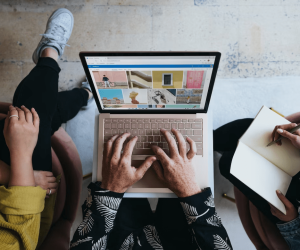
When it comes to traveling to Australia, there’s much to anticipate, from its stunning landscapes to its vibrant cities. However, amidst the excitement, it’s crucial not to overlook the importance of cybersecurity.
Protecting your personal and sensitive information while traveling is paramount, especially when accessing streaming platforms like Peacock TV in Australia.
To enjoy your favorite shows and movies on Peacock TV while maintaining online security, it’s essential to get the best Peacock VPN in Australia. With cyber threats looming, protecting your personal and sensitive information becomes crucial when accessing streaming platforms abroad.
In this blog, we will explore the key aspects of cybersecurity that you should be aware of while traveling Down Under and discuss how leveraging a reliable VPN can enhance your digital protection, allowing you to stream worry-free on Peacock TV from anywhere in Australia.
Essential Cybersecurity Information For Travelers To Australia
Secure Your Devices
Before embarking on your trip, ensure that all your electronic devices, including smartphones, laptops, and tablets, are adequately protected. Update the operating systems and applications with the latest security patches and enable robust antivirus and firewall software. Set strong passwords or use biometric authentication methods to secure your devices, making it harder for unauthorized access.
Public Wi-Fi Risks
Public Wi-Fi networks are often convenient, especially when you’re traveling. However, they can be a hotbed for cybercriminals. Avoid connecting to unsecured or unknown Wi-Fi networks, such as those in airports, cafes, or hotels, as they can be compromised. Instead, use a VPN to encrypt your internet connection and protect your data from prying eyes.
Be Wary Of Phishing Attacks
Phishing attacks are prevalent and can target unsuspecting travelers. Exercise caution when clicking on links or downloading attachments from unfamiliar emails or websites. Be particularly vigilant with emails appearing to be from banks, government agencies, or travel companies, as they may attempt to trick you into providing personal information or login credentials. When in doubt, contact the relevant organization directly through official channels to verify the legitimacy of any requests.
Protect Personal Information
While traveling, it’s important to safeguard your personal information. Avoid carrying unnecessary documents containing sensitive details like your social security number, passport photocopies, or credit card statements. Keep electronic copies of essential documents stored securely in password-protected cloud storage or encrypted USB drives. Additionally, consider enabling two-factor authentication (2FA) for your online accounts to provide an extra layer of security.
Stay Updated On Current Threats
Cyber threats are constantly evolving, and it’s crucial to stay informed about the latest cybersecurity risks. Stay updated with news and advisories related to cybersecurity while traveling in Australia. Regularly check the website or social media accounts of your country’s embassy or consulate for any travel alerts or security updates. By staying informed, you can adapt your security practices accordingly and mitigate potential risks.
Use Secure Payment Methods
When making payments during your trip, opt for secure payment methods to protect your financial information. Credit cards equipped with chip-and-PIN technology are generally more secure than traditional magnetic stripe cards. Consider using contactless payment options, such as mobile wallets, which often provide enhanced security features like tokenization. Additionally, regularly monitor your financial transactions and report any suspicious activity to your bank immediately.
Secure Your Physical Devices
While focusing on digital security, it’s important not to overlook the physical protection of your devices. Keep your electronic devices with you at all times, especially in crowded public places or transportation hubs, to prevent theft or tampering. Consider using a secure backpack or bag with hidden compartments to store your devices when not in use. Avoid leaving your devices unattended in hotel rooms or other public areas where they can be easily accessed.
Disable Automatic Connectivity Features
To maintain control over your device’s connections and protect your privacy, disable automatic connectivity features such as Bluetooth, Wi-Fi, and NFC when not in use. Cybercriminals can exploit these connections to gain unauthorized access to your device or extract personal information. Enable these features only when necessary, and ensure that your device is set to prompt for permission before connecting to new devices or networks.
Be Cautious With Public Computers And Charging Stations
Using public computers, such as those available in internet cafes or hotel business centers, can pose significant security risks. Avoid logging into personal accounts or accessing sensitive information from these devices, as they may be compromised with keyloggers or malware. Similarly, exercise caution when using public charging stations, as they can potentially transfer malware or extract data from your device. Consider carrying your own portable charger or using a wall socket to charge your devices instead.
Backup Your Data
Backing up your data regularly is a crucial aspect of cybersecurity, especially while traveling. In case your device gets lost, stolen, or compromised, having a recent backup ensures you don’t lose important information. Use cloud-based backup services or external hard drives to securely store your data. Encrypt your backups for an added layer of protection. Additionally, test your backup restoration process before traveling to ensure it functions properly when needed.
Stay Updated On Local Cybersecurity Laws
Familiarize yourself with the local cybersecurity laws and regulations in Australia. Different countries have varying laws regarding data privacy, encryption, and internet usage. Understanding these laws can help you navigate the online landscape safely and avoid any unintentional violations. Stay informed about any changes or updates to cybersecurity legislation that may affect your digital activities during your stay in Australia.
Report Suspicious Incidents
If you encounter any suspicious incidents or believe you have fallen victim to a cyberattack while traveling in Australia, it’s crucial to report it promptly. Notify the appropriate authorities, such as the local police or your country’s embassy or consulate. They can provide guidance, investigate the incident, and offer assistance if needed. Reporting incidents not only helps protect yourself but also contributes to creating a safer digital environment for other travelers.
Crux
As you prepare for your journey to Australia, it’s crucial to prioritize cybersecurity to safeguard your digital presence. By adopting these cybersecurity measures and traveling tips, you can explore Australia’s wonders with peace of mind, knowing that you have taken important steps to stay safe and secure. Enjoy your trip while staying cyber aware and make lasting memories Down Under. Safe travels!



